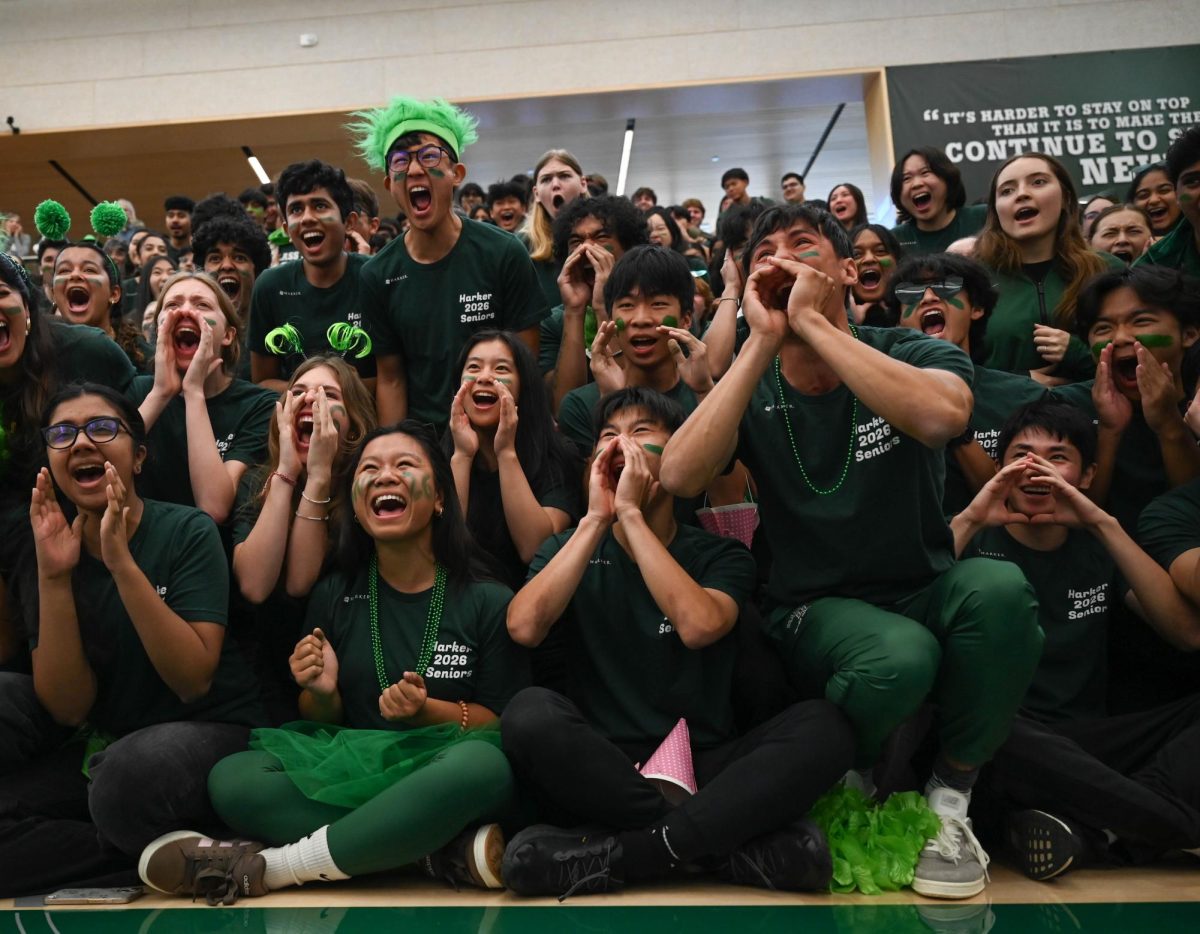Memoirs of a comedienne: Tina Fey inspires laughter
May 23, 2011
If I were clever enough to write a review with the wit of Tina Fey’s new memoir, Bossypants, I would have to drop out of school and start producing and starring in my own television show. Fortunately enough for the American public, that’s not the case.
Bossypants is a quick, two-hour package of short biographical stories about Fey’s life. It reads like an anthology of random remembrances pieced together in chronological order: the only smooth continuity between her tales lies in the unrelenting and amusing sarcasm Fey is known for.
Fey’s flitting from moment to moment between kindergarten, adolescence, Saturday Night Live, parenthood, and her career of producing 30 Rock brings up the question of her intent for the book.
One story veers surprisingly deep, grappling with what truly accepting her gay friends meant to Fey in her teenage years. Other stories stay surprisingly shallow. I laughed when she wrote that commercials for feminine products on television led her, as a child, to believe her period would be a blue liquid. Reading about Fey’s father is equally entertaining: any student would understand my calling him a true “beast.”
To complicate matters, there is a subtle feminist undercurrent sprinkled throughout the book alongside copious expletives. In the introduction, Fey explains that she titled the book Bossypants because she gets questions that she is sarcastically sure Donald Trump fields on a regular basis, like “Is it hard for you, being the boss?” She rhapsodizes on Saturday Night Live’s Amy Poehler and the bias against women in comedy. Fey also writes about how she juggles family and work, like a stereotypical career mom’s life on steroids.
Finally, no memoir would be complete without references to the autobiographer’s cultural origins, and Fey does not disappoint: “what nineteen-year-old Virginia boy doesn’t want a wide-hipped, sarcastic Greek girl with short hair that’s permed on top?” Fey’s heritage is used as another continuous source of humor in many of the stories.
However, none of these ideas – culture, feminism, deep introspection, or anything, really – grow into a full, circular, bundled-up work. Instead, the full story of Fey’s life is constructed of fragments: glimpses of made-for-TV moments written in punch-line form with an occasional moral thrown in the mix.
Perhaps this fragmentation is a true reflection of her and the many facets of her life: she is a comedian, actress, producer, and mother, and she plays any other roles. Perhaps Fey understands that, no matter how much she wrote, the reader would not be able to grasp her as a complete person and so she might as well make it quick.
Or maybe, with a cover featuring a composite of Fey’s face with a man’s hairy arms, Bossypants is simply what it looks like: just funny.


















![“[Building nerf blasters] became this outlet of creativity for me that hasn't been matched by anything else. The process [of] making a build complete to your desire is such a painstakingly difficult process, but I've had to learn from [the skills needed from] soldering to proper painting. There's so many different options for everything, if you think about it, it exists. The best part is [that] if it doesn't exist, you can build it yourself," Ishaan Parate said.](https://harkeraquila.com/wp-content/uploads/2022/08/DSC_8149-900x604.jpg)




![“When I came into high school, I was ready to be a follower. But DECA was a game changer for me. It helped me overcome my fear of public speaking, and it's played such a major role in who I've become today. To be able to successfully lead a chapter of 150 students, an officer team and be one of the upperclassmen I once really admired is something I'm [really] proud of,” Anvitha Tummala ('21) said.](https://harkeraquila.com/wp-content/uploads/2021/07/Screen-Shot-2021-07-25-at-9.50.05-AM-900x594.png)







![“I think getting up in the morning and having a sense of purpose [is exciting]. I think without a certain amount of drive, life is kind of obsolete and mundane, and I think having that every single day is what makes each day unique and kind of makes life exciting,” Neymika Jain (12) said.](https://harkeraquila.com/wp-content/uploads/2017/06/Screen-Shot-2017-06-03-at-4.54.16-PM.png)








![“My slogan is ‘slow feet, don’t eat, and I’m hungry.’ You need to run fast to get where you are–you aren't going to get those championships if you aren't fast,” Angel Cervantes (12) said. “I want to do well in school on my tests and in track and win championships for my team. I live by that, [and] I can do that anywhere: in the classroom or on the field.”](https://harkeraquila.com/wp-content/uploads/2018/06/DSC5146-900x601.jpg)
![“[Volleyball has] taught me how to fall correctly, and another thing it taught is that you don’t have to be the best at something to be good at it. If you just hit the ball in a smart way, then it still scores points and you’re good at it. You could be a background player and still make a much bigger impact on the team than you would think,” Anya Gert (’20) said.](https://harkeraquila.com/wp-content/uploads/2020/06/AnnaGert_JinTuan_HoHPhotoEdited-600x900.jpeg)

![“I'm not nearly there yet, but [my confidence has] definitely been getting better since I was pretty shy and timid coming into Harker my freshman year. I know that there's a lot of people that are really confident in what they do, and I really admire them. Everyone's so driven and that has really pushed me to kind of try to find my own place in high school and be more confident,” Alyssa Huang (’20) said.](https://harkeraquila.com/wp-content/uploads/2020/06/AlyssaHuang_EmilyChen_HoHPhoto-900x749.jpeg)









